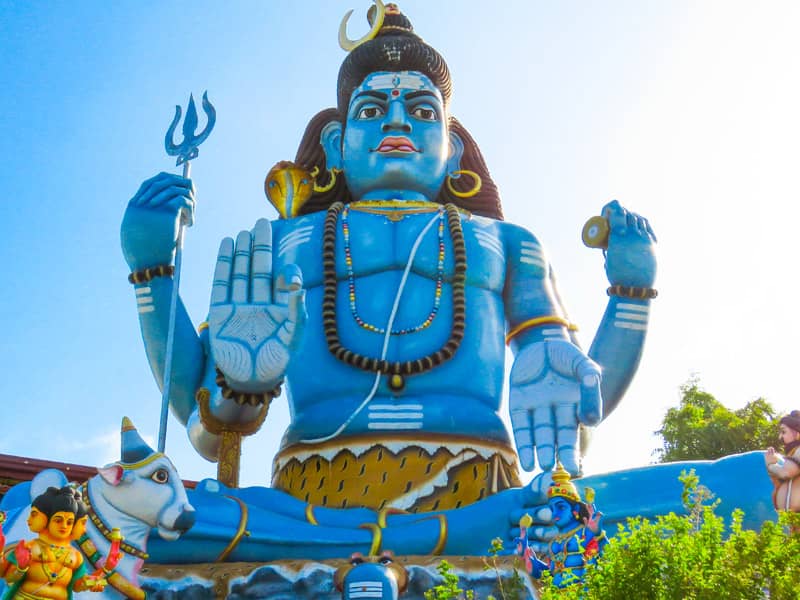Many see the festival as the Hindu New Year: a time to let loose with the firecrackers, renew acquaintances, pay off old debts, and perhaps pick up some new ones during an all-night frenzy of gambling (in one rather dubious myth, the Goddess Parvati claimed that gambling on Diwali would ensure prosperity in the year ahead). The devout celebrate the holiday with an outpouring of religious passion inspired by another legend: the triumph of Lord Krishna over the demon Narakasura.
But yet another story about the origins of Diwali has taken on real-life resonances in India's political consciousness. In tracing the fall and rise of Prince Rama, some see a metaphor for the resurrection of a purer India, free of Islamic-era and colonial influences. While centuries have passed since India first came under Mughal rule, scars remain. Hindus contend that thousands of temples were destroyed by Muslim invaders, and that certain practices such as child marriage and sati (the self-immolation of widows upon pyres) were merely desperate responses to marauding armies.
The story of god-hero Rama (the Ramayana) may be the most common and beloved tale about the origins of Diwali. It tells of a prince, unjustly driven into exile, who stages a triumphant return by means of strength and fortitude. A paragon of dharma (dutifulness), Rama is exiled from his kingdom by an insecure, power-hungry stepmother and his feckless, conflicted father. After many adventures and trials, Rama battles the lustful ten-headed demon Ravana and recovers his kidnapped wife. Rama then returns to his kingdom and assumes his rightful role as the king, where he prevails over an empire of unprecedented strength, virtue and peacefulness, ushering in an era known as Ram Rajya.
It's this kind of golden age that some Hindus hunger for. There is a shared sense among many Hindus, both within India and throughout the diaspora, that India needs to return to a more virtuous era. Those who have contended with the many inequities of modern Indian life--the corruption, the poverty--think: If only we could recover our glorious Hindu civilization, our problems would be gone.
One example of how large Rama's victory looms in the Indian mind is its popularity in the mass media. In the late 1980s, India's national TV network broadcast a serialized version of the Ramayana. Produced by Ramanand Sagar, it was easily one of the defining moments of Indian pop culture, in that its popularity and reach was unprecedented. This was before the advent of cable television, and so in both cities and villages (where one TV would be wheeled in front of a crowd of hundreds), people gathered on a regular basis to watch and worship simultaneously. By using a number of non-actors, Sagar was able to fix in the minds of many viewers an indelible image of what their most revered mythological figure looked like, and perhaps more importantly, how he behaved.
Indian reformers--and especially those who embrace Hindutva, a sometimes militant philosophy advocating a return to India's roots--want to look to Rama for inspiration in creating a new India. But does the metaphor really hold up? In West Bengal, for instance, the dominant version of the tale carefully challenges the concept of Rama's unmitigated goodness and even ends with Rama and his brothers being killed by his sons before being resurrected and going to heaven. Elsewhere, a tradition of questioning the actions of individuals in the Ramayana has ensured that even the most ardent devotees interact with the story rather than merely accepting it at face value. There are even regional traditions in which Ravana, typically thought of as a demon and arch-villain, is revered.
Indeed, the Rama of the TV show was but one of many era-specific Ramayanas, a point argued by Paula Richman, the late A.K. Ramanujan, and other scholars in recent times. True, the most popular Ramayana has been the sage Valmiki's version. But over the centuries, Hindus have relied on a variety of versions of the epic, versions that broke down by gender, caste, and region.
The fact that the Diwali-Rama story has taken on political resonance is not necessarily a bad thing--it has inspired Indians for generations--but Hindus should be careful when reverting to it as a model. Just as Hindus celebrate Diwali in many ways and understand its legends differently, so political activists must embrace different voices in their quest for a better India. A multiplicity of meanings, whether it is for an epic or for any number of festivals, has been integral to the resilience of Hindu culture. It has ensured that Hindus can claim their own story, their own celebration, their own truths.

